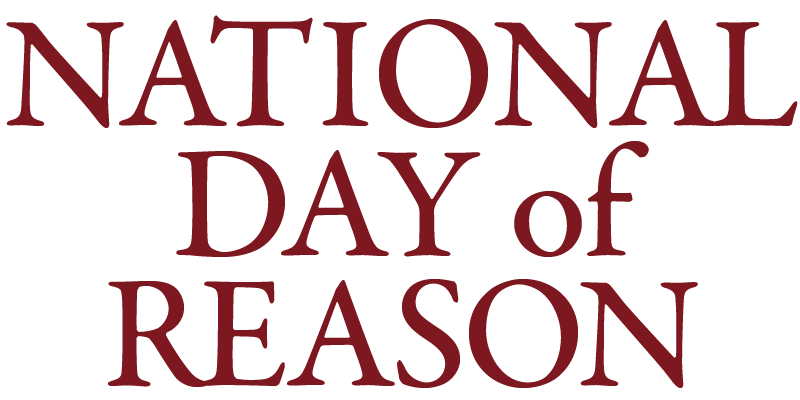why do we oppose the national day of prayer?
Why do we oppose the National Day of Prayer, and suggest marking the National Day of Reason as an alternative?
1
The National Day of Prayer violates the First Amendment of the US Constitution because it asks federal and local government entities to set aside tax dollar supported time and space to engage in religious ceremonies. This results in unconstitutional governmental support of religion over no religion.
2
Led by Christian nationalist Shirley Dobson, the National Day of Prayer Task Force promotes thousands of events specifically in accordance with its Judeo-Christian beliefs and focuses on a small segment of the Protestant Christian demographic. Since they hold their events on the government sponsored National Day of Prayer, government officials of all levels participate in these events as if they were government endorsed.
3
The Supreme Court has made it clear (and most Americans agree) that state-sanctioned prayer in public school is inappropriately exclusionary and a violation of the First Amendment. How is a nationally-sponsored day of prayer any more inclusive? This national effort geared toward a small slice of the religious spectrum is clearly outside the boundaries of proper governmental reach and runs counter to the secular ideals of the Framers of the Constitution.
The National Day of Prayer puts inappropriate pressure on non-religious Americans to conform with governmental leaders through prayer, and this intentionally excludes humanists and nonbelievers.
4
Religious Americans who wish to pray don’t need to be reminded by government to do so. In fact, there’s no reason to limit prayer to a single day for those who practice their chosen faith in that way. Government has no business saying when, how, or what Americans should do when and if they engage in their own personal religious practice.
5
Government also violates the First Amendment with the National Day of Prayer by acting to promote a certain manifestation of religion. It emphasizes only one form of religious practice, and therefore discriminates against the many others, including alms giving, social justice, fasting, peace activism, and meditation.
6
Whenever government involves itself in religious practice, as is done with the National Day of Prayer, it taints that religious practice by reducing the co-opted religion’s effectiveness to protest government action. In an infeasible effort to broaden the practice’s appeal, the government risks inappropriately diluting the messages of faithful adherents.
7
Freedom of expression and worship, including the opportunity to pray or not pray as we wish, are already present without government endorsement. There is no need to set aside a public day for prayer.
